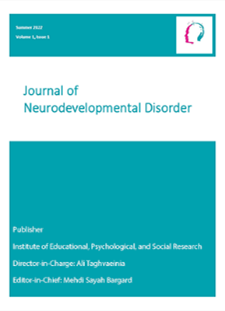Parental Experiences with Home-Based Early Intervention Programs for Children with Developmental Delays
Keywords:
5E Learning Model, academic anxiety, face-to-face learning, online learning, middle school students, COVID-19 pandemicAbstract
Objective: The objective of this study was to evaluate the effectiveness of the 5E Learning Model in reducing academic anxiety among male middle school students in Zabol, comparing its application in face-to-face and online learning environments during the COVID-19 pandemic.
Methods and Materials: This research used a quasi-experimental design with a pre-test/post-test approach. A sample of 60 male middle school students from Zabol was randomly divided into three groups: a face-to-face 5E model group, an online 5E model group, and a control group. The 5E model groups were exposed to a series of instructional activities based on the 5E framework (Engage, Explore, Explain, Elaborate, Evaluate) over a period of four weeks. Academic anxiety was assessed using a standardized questionnaire before and after the intervention. The data were analyzed using ANCOVA and post-hoc tests to compare pre- and post-test anxiety levels across groups.
Findings: The study found significant reductions in academic anxiety in both the face-to-face and online 5E model groups compared to the control group. However, the reduction was more pronounced in the face-to-face group. The post-hoc tests revealed that both intervention groups showed significant improvements from pre-test to post-test, but no significant differences were observed between the face-to-face and online groups in terms of intervention effectiveness.
Conclusion: The 5E Learning Model is an effective strategy for reducing academic anxiety in middle school students, with face-to-face learning showing slightly greater benefits compared to online learning. These findings suggest that inquiry-based learning models, such as the 5E framework, can be successfully adapted to different learning environments to alleviate academic anxiety.
Downloads
Downloads
Published
Submitted
Revised
Accepted
Issue
Section
License
Copyright (c) 2024 Mohammad Hadi Dadrass (Author); Hossein Jenaabadi (Corresponding author); Fatemeh Soghra Karbalai Harafteh (Author)

This work is licensed under a Creative Commons Attribution-NonCommercial 4.0 International License.















